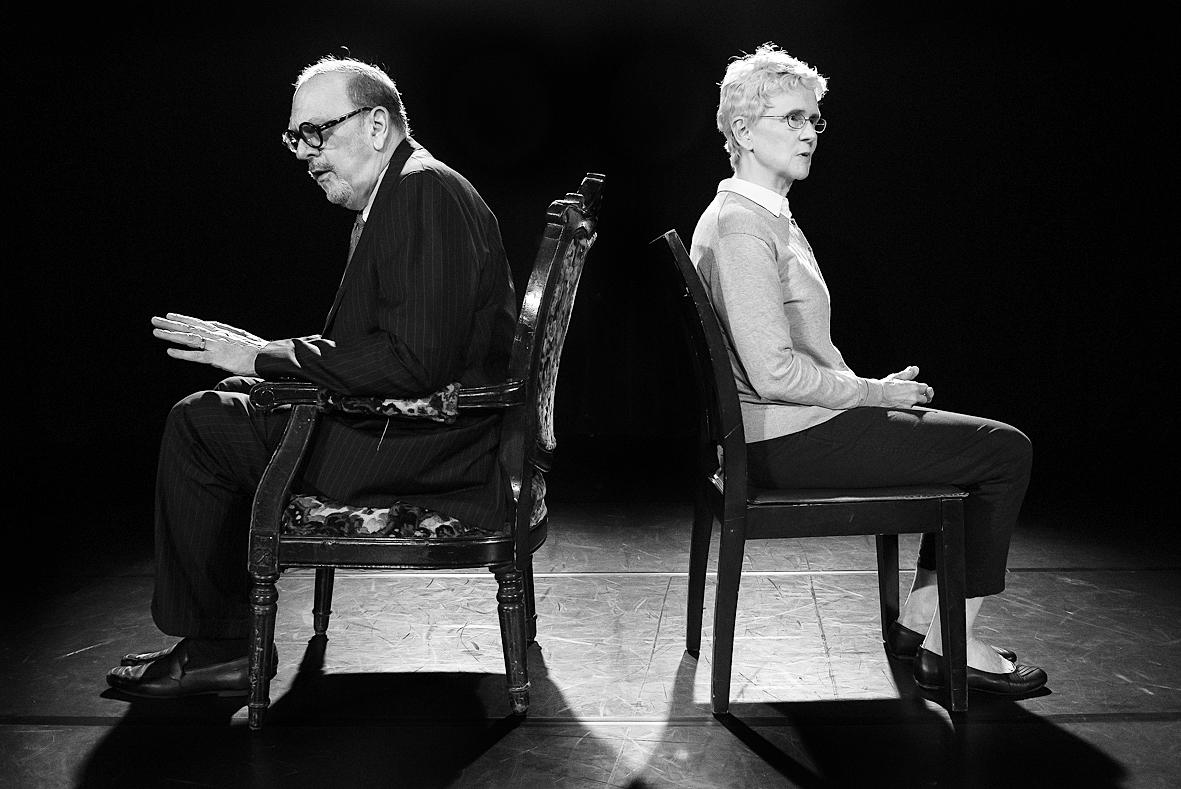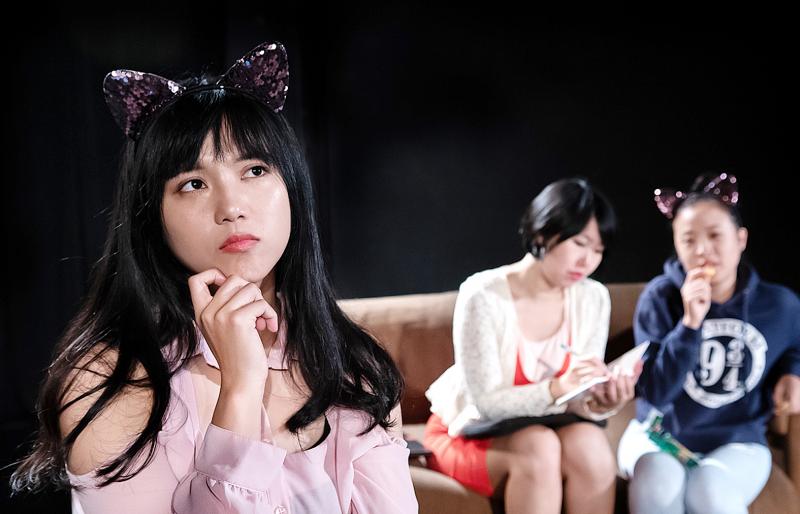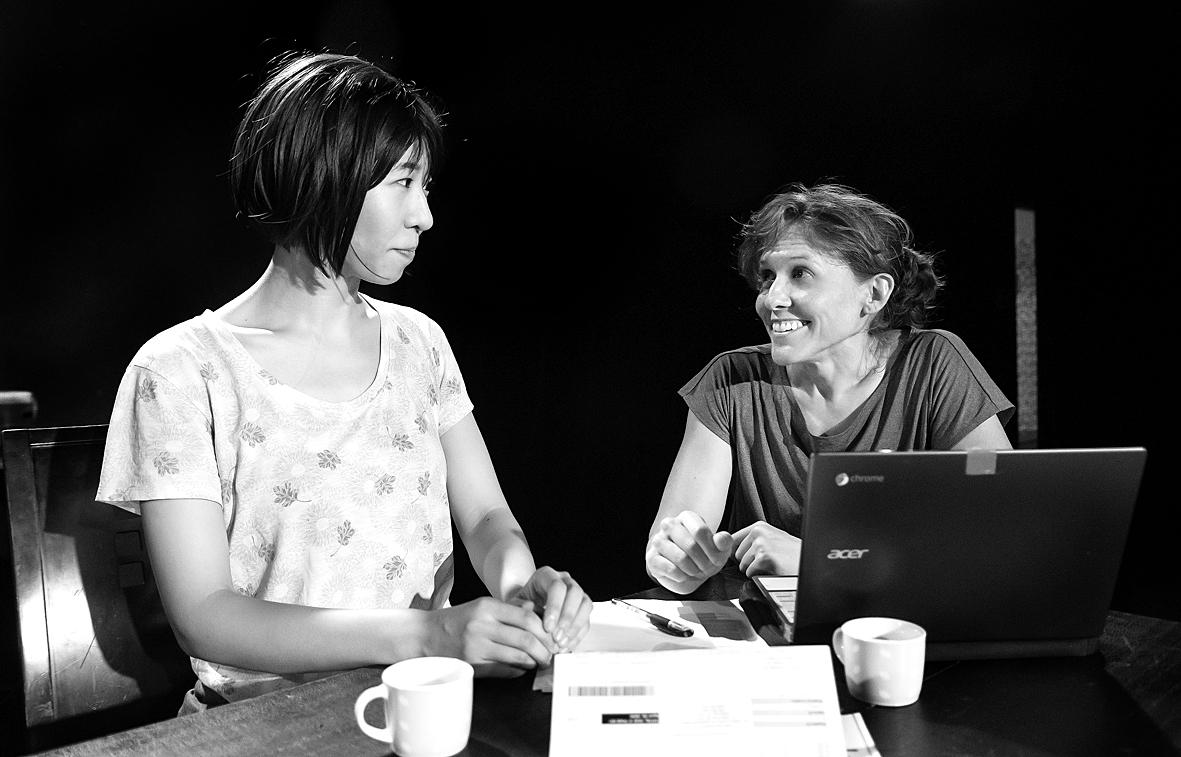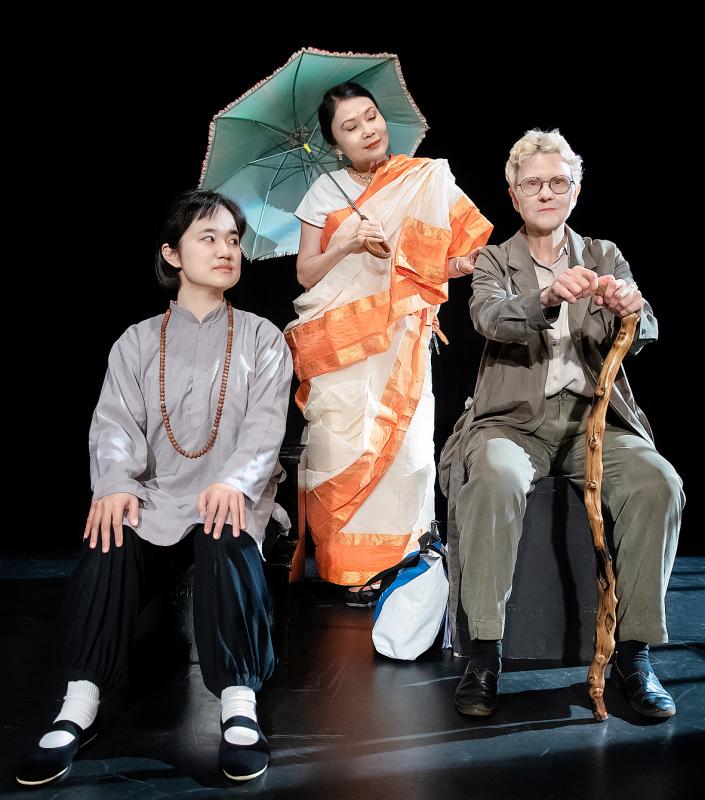COVID-19 has caused chaos with social events, but in true theater fashion, producers John Brownlie and Alicia Haddad insist the show must go on.
Taipei Shorts 2020 showcases local playwrights, old and new, with a series that primarily touches family issues.
Living in the Tube II continues William Chen’s (陳惟元) saga of Jane, a charming, seductive, live streaming hostess, whose online “single status” cover has been blown. Her sister Mia, a gamer, moves in to share rent and household bills. She considers joining Jane’s streaming platform for the money, but promoting unwanted political agendas goes with that territory. It’s decision time for Mia. (In Mandarin with English subtitles, the rest are in English with Mandarin subtitles.)

Photo courtesy of Alicia Haddad
Barry Hall presents Nuclear Family. George and Martha’s lives have taken very different paths since their divorce. George is well-off, comfortable and happy with a beautiful new wife. Martha, coping with years of failure and joblessness, questions her own sanity. The rise to fame and power of their now adult son dredges up long-buried memories and fears for them to confront.
In Teddy, Joshua Wallace’s first Taipei play, Jessica and Jerry, a seemingly perfect, loving couple have long hidden secrets. Circumstances force a double dilemma. Will they finally confess and what consequences will follow? And what about the guy in the closet and the teddy bear?
Stephen Douglas Wright poses questions and looks for answers in his slice of family life, Coffee for Muriel. Muriel comes home drunk to find her older sister applying for jobs. With their mother dying in the next room, how best can the sisters cope and adjust?

Photo courtesy of Alicia Haddad
Finally, Shahswati Talukadar presents Return of the Hero, her third play in the saga of Boze and the Monk. The venerable Indian sage, Boze, (now an enduring age of 123) and his caretaker/jailer Monk are on a plane back to New Delhi. What new truths will they discover on this journey?
And as for various cast members, we find past favorites like Lizzy Mew, D.C. Rapier, Sara Brooks, Sharon Landon and more. It promises to be another great evening.
Attendees are required to wear masks; temperature will be taken at the door along with assigned seating and contact tracking.

Photo courtesy of Alicia Haddad

Photo courtesy of Alicia Haddad

May 18 to May 24 Pastor Yang Hsu’s (楊煦) congregation was shocked upon seeing the land he chose to build his orphanage. It was surrounded by mountains on three sides, and the only way to access it was to cross a river by foot. The soil was poor due to runoff, and large rocks strewn across the plot prevented much from growing. In addition, there was no running water or electricity. But it was all Yang could afford. He and his Indigenous Atayal wife Lin Feng-ying (林鳳英) had already been caring for 24 orphans in their home, and they were in

On May 2, Chinese Nationalist Party (KMT) Chairman Eric Chu (朱立倫), at a meeting in support of Taipei city councilors at party headquarters, compared President William Lai (賴清德) to Hitler. Chu claimed that unlike any other democracy worldwide in history, no other leader was rooting out opposing parties like Lai and the Democratic Progressive Party (DPP). That his statements are wildly inaccurate was not the point. It was a rallying cry, not a history lesson. This was intentional to provoke the international diplomatic community into a response, which was promptly provided. Both the German and Israeli offices issued statements on Facebook

Even by the standards of Ukraine’s International Legion, which comprises volunteers from over 55 countries, Han has an unusual backstory. Born in Taichung, he grew up in Costa Rica — then one of Taiwan’s diplomatic allies — where a relative worked for the embassy. After attending an American international high school in San Jose, Costa Rica’s capital, Han — who prefers to use only his given name for OPSEC (operations security) reasons — moved to the US in his teens. He attended Penn State University before returning to Taiwan to work in the semiconductor industry in Kaohsiung, where he

Australia’s ABC last week published a piece on the recall campaign. The article emphasized the divisions in Taiwanese society and blamed the recall for worsening them. It quotes a supporter of the Taiwan People’s Party (TPP) as saying “I’m 43 years old, born and raised here, and I’ve never seen the country this divided in my entire life.” Apparently, as an adult, she slept through the post-election violence in 2000 and 2004 by the Chinese Nationalist Party (KMT), the veiled coup threats by the military when Chen Shui-bian (陳水扁) became president, the 2006 Red Shirt protests against him ginned up by